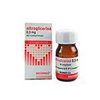INDICATIONS
Nitroglycerin is used for preventing chest pain caused by heart disease. Nitroglycerin is a nitrate. It works by widening blood vessels in the body, which allows more blood to flow more easily through them and reduces the work the heart has to do to pump blood. This reduces the oxygen need of the heart, and helps prevent chest pain.
INSTRUCTIONS
Use Nitroglycerin as directed by your doctor.
- Do not crush, chew, or swallow the tablet, or place it under the tongue.
- Place tablet(s) under the upper lip or between the gum and cheek and allow it to dissolve slowly over a 3 to 5 hour period or as directed by your health care provider. If you wear dentures, place the tablet between the cheek and gum above the denture plate. Touching the tablets with the tongue or drinking hot liquids will help the tablets dissolve faster.
- If you accidentally swallow a tablet, replace it with another one, unless otherwise advised by your doctor.
- If you miss a dose of Nitroglycerin and you are taking it regularly, take it as soon as possible. If several hours have passed or if it is nearing time for the next dose, do not double the dose to catch up, unless advised by your health care provider. Do not take 2 doses at once.
Ask your health care provider any questions you may have about how to use Nitroglycerin.
STORAGE
Store Nitroglycerin between 59 and 86 degrees F (15 and 30 degrees C). Store away from heat, moisture, and light. Do not store in the bathroom. Keep Nitroglycerin out of the reach of children and away from pets.
Do NOT use Nitroglycerin if:
- you are allergic to any ingredient in Nitroglycerin
- you suspect your are having a heart attack
- you have increased pressure inside the head
- you have severe anemia
- you are currently taking a phosphodiesterase type 5 inhibitor (eg, sildenafil), a medicine used frequently for sexual dysfunction.
Contact your doctor or health care provider right away if any of these apply to you.
Some medical conditions may interact with Nitroglycerin. Tell your doctor or pharmacist if you have any medical conditions, especially if any of the following apply to you:
- if you are pregnant, planning to become pregnant, or are breast-feeding
- if you are taking any prescription or nonprescription medicine, herbal preparation, or dietary supplement
- if you have allergies to medicines, foods, or other substances
- if you drink alcoholic beverages
- if you have a history of heart failure, overactive thyroid, recent head trauma, recent heart attack, recent stroke, head injury, or low blood pressure.
Some medicines may interact with Nitroglycerin. Tell your health care provider if you are taking any other medicines, especially any of the following:
- Beta-blockers (eg, propranolol), calcium channel blockers (eg, diltiazem), phenothiazines (eg, thioridazine), or phosphodiesterase type 5 inhibitors (eg, sildenafil) because side effects such as severely low blood pressure may occur
- Alteplase or heparin because the effectiveness of these medicines may be decreased
- Salicylates (eg, aspirin) because the effectiveness of nitroglycerin may be altered. Control of blood pressure may be impaired and your doctor may need to adjust your dose.
This may not be a complete list of all interactions that may occur. Ask your health care provider if Nitroglycerin may interact with other medicines that you take. Check with your health care provider before you start, stop, or change the dose of any medicine.
Important safety information:
- Nitroglycerin may cause dizziness or blurred vision. Use caution while driving or performing other tasks requiring alertness, coordination, or physical dexterity.
- Nitroglycerin may cause dizziness, lightheadedness, or fainting. Alcohol, hot weather, exercise, and fever can increase these effects. To prevent them, sit up or stand slowly, especially in the morning. Also, sit or lie down at the first sign of dizziness, lightheadedness, or weakness.
- To avoid tooth and gum decay, vary location sites and brush your teeth after the tablet has completely dissolved.
- Do not fall asleep with a tablet in your mouth.
- Lab tests, including blood electrolytes and blood pressure, may be performed to monitor your progress or to check for side effects. Be sure to keep all doctor and lab appointments.
- Nitroglycerin is not recommended for use in children. Safety and effectiveness have not been confirmed.
- Pregnancy and breast-feeding: If you become pregnant, discuss with your doctor the benefits and risks of using Nitroglycerin during pregnancy. It is unknown if Nitroglycerin is excreted in breast milk. If you are or will be breast-feeding while you are using Nitroglycerin, check with your doctor or pharmacist to discuss the risks to your baby.
All medicines may cause side effects, but many people have no, or minor, side effects.
Check with your doctor if any of these most common side effects persist or become bothersome:
Burning or tingling in the mouth; dizziness; flushing; headache; heavy sweating; lightheadedness; nausea; pale skin; vomiting.
Seek medical attention right away if any of these severe side effects occur:
Severe allergic reactions (rash; hives; difficulty breathing; tightness in the chest; swelling of the mouth, face, lips, or tongue); blurred vision; fainting; increased chest pain; pounding in the chest; slow heartbeat.
This is not a complete list of all side effects that may occur. If you have questions about side effects, contact your health care provider.
 NorvascNorvasc is used for treating high blood pressure and angina (chest pain).as low as $0.35
NorvascNorvasc is used for treating high blood pressure and angina (chest pain).as low as $0.35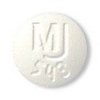 VasodilanVasodilan is used for improving blood flow in some conditions (eg, cerebral vascular insufficiency, arteriosclerosis obliterans, Buerger disease, Raynaud disease).as low as $0.56
VasodilanVasodilan is used for improving blood flow in some conditions (eg, cerebral vascular insufficiency, arteriosclerosis obliterans, Buerger disease, Raynaud disease).as low as $0.56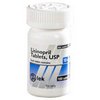 LisinoprilLisinopril is used for treating high blood pressure alone or with other medicines.as low as $0.41
LisinoprilLisinopril is used for treating high blood pressure alone or with other medicines.as low as $0.41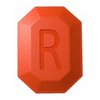 LozolLozol is used for treating high blood pressure, swelling, or congestive heart failure due to excess fluid in the body.as low as $0.78
LozolLozol is used for treating high blood pressure, swelling, or congestive heart failure due to excess fluid in the body.as low as $0.78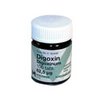 DigoxinDigoxin is used for treating heart failure and slowing the heart rate in patients with chronic atrial fibrillation, a type of abnormal heart rhythm. as low as $0.47
DigoxinDigoxin is used for treating heart failure and slowing the heart rate in patients with chronic atrial fibrillation, a type of abnormal heart rhythm. as low as $0.47 HyzaarHyzaar is used for treating high blood pressure.as low as $1.46
HyzaarHyzaar is used for treating high blood pressure.as low as $1.46